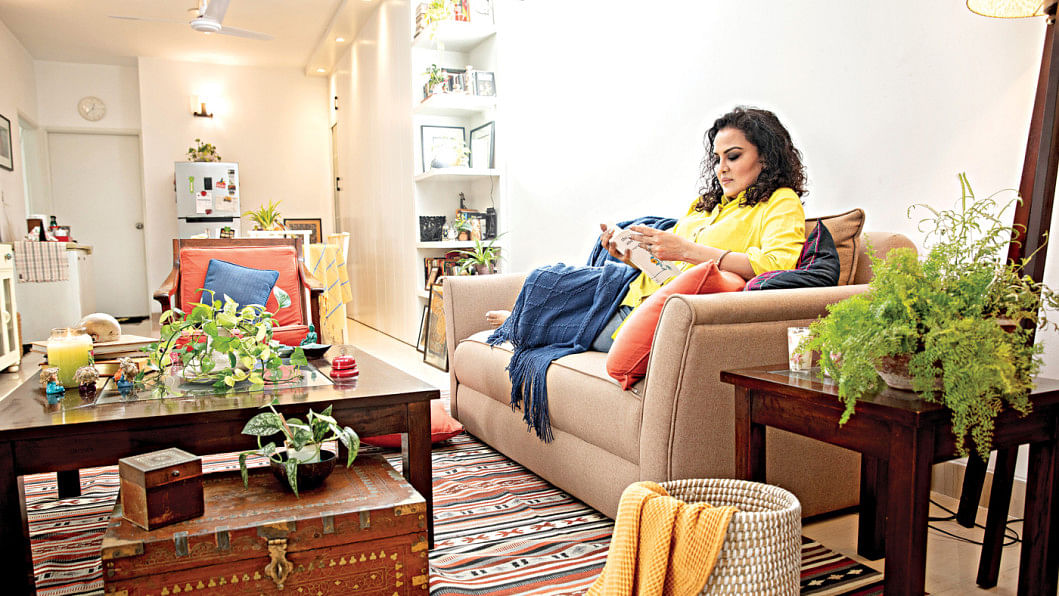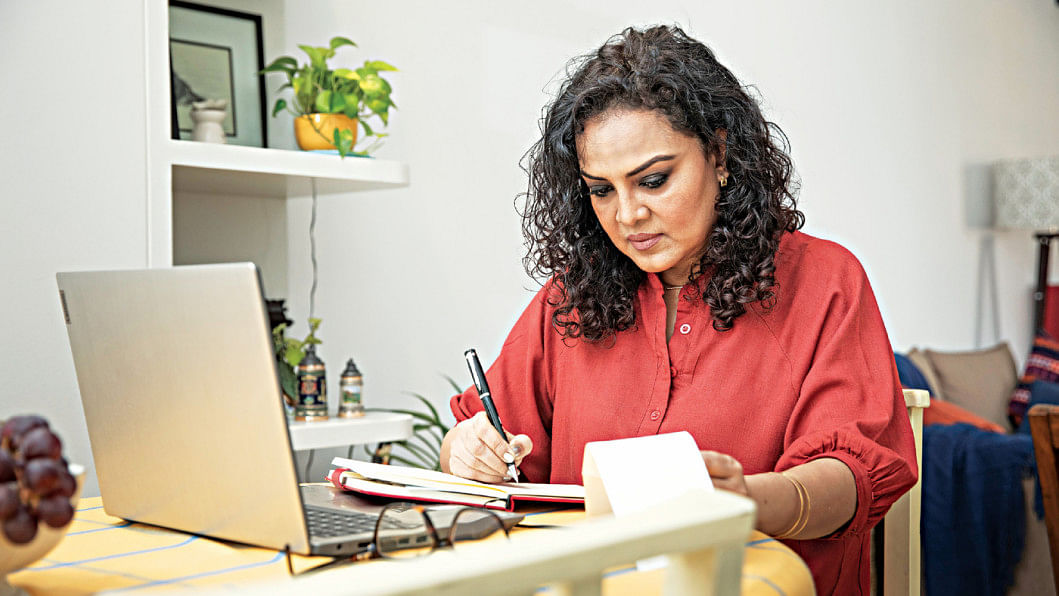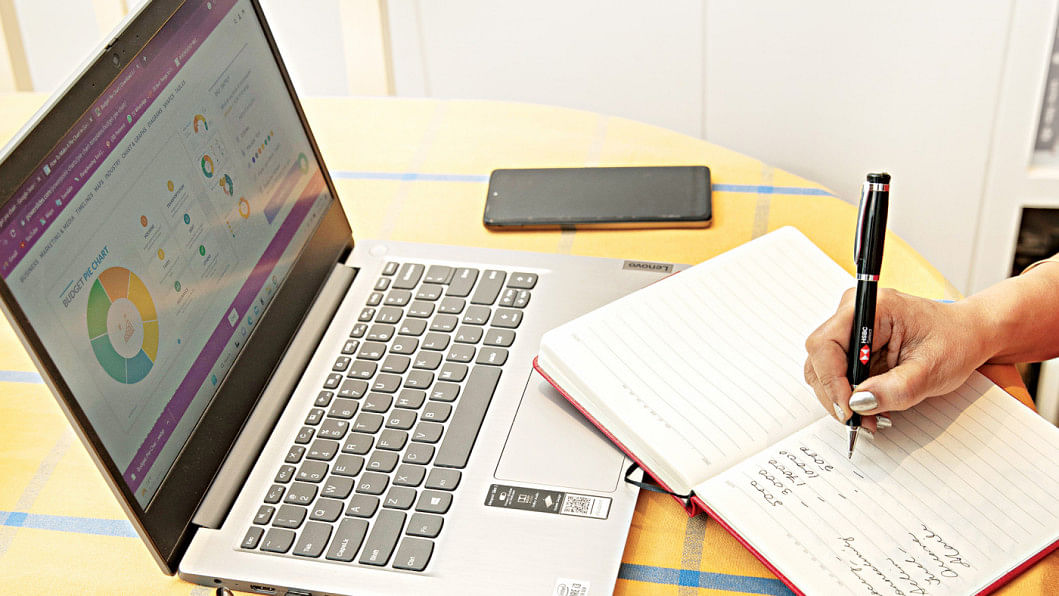Inflation and its effect on the livelihood of middle-class families

The middle class in Bangladesh is facing an unprecedented cost of living crisis that is making it increasingly difficult to survive. As wages remain stagnant, cost of living has skyrocketed, creating a situation in which the middle class is struggling to make ends meet. Prices for basic goods such as food and rent have become increasingly expensive, rice that used to be just Tk 30-40 per kg is now over Tk 65; soyabean oil has gone from around Tk 100 to surpassing Tk 200 at one point. Fuel prices have increased exponentially, leading to a chain reaction of increasing prices of everything; from electricity, gas and water to travel expenses.
While Asian Development Bank (ADB) classifies middle class as earning from 2 to 20 dollars a day, that would put more than 20 per cent of the population of Bangladesh in the middle-class category. The suffering of the middle class tends to be higher as unlike the underprivileged people, they can't throng to the TCB trucks to buy products at reduced rates, nor can they afford to buy everything at the same quantity as before with increasing prices. So how are the middle-class people of Dhaka coping up with such a crisis?
To understand the struggles of Dhaka's middle class, we spoke to three people in three income brackets, hailing from the lower middle class to the higher one.
Helal Ahmed; Driver with Tk 22,000 salary
"My house rent costs Tk 7,000, and I have to send at least Tk 2,000 or Tk 3,000 to my parents at the village every month. With the rest of the money, I have to pay my bills, do grocery shopping and pay education expenses for my two children. I barely have any money left at the end of the month and, often have to borrow from friends," said Helal Ahmed, a driver who works in Dhaka's Azimpur area.

People like Helal, whose monthly income hovers just around Tk 20,000, are generally put in the lower middle-class bracket. With prices of everything rising continuously, Helal finds himself constantly at odds over how to survive Dhaka without enough money, as his savings are all used up by just trying to stay afloat. The only way he can cope with this crisis is by cutting down consumption of essentials, with food items the most cut-down option.
"I have completely cut off beef, and reduced consumption of fish, chicken, milk and eggs for my family. Times are hard for everyone, but I am still ensuring both my children are attending school, as we can survive by eating less, but to ensure our children has a better future, I would rather struggle than deny them a chance to lead a good life," said Helal, when asked what his priority is with his limited income.
Hasib Hossain; Sales Executive at a private company with Tk 35,000 salary
At first glance, it would seem that Hasib Hossain, an employee of a private company, is in a much better financial position than Helal. He lives with his wife and son in his family home in Dhaka's Banasree. Living in a joint family, he didn't have to cut down his food consumption much, even amidst the rising prices. However, people like him have different sorts of problems.
"Out of my income, I have to give at least Tk 5,000 to my parents as they both have various old age complications. On top of that, I have to live in a medium-sized apartment with my parents and brother who also has family, and contribute at least Tk 10,000 every month for the groceries and utility bills as we divide the expenses according to our earnings," stated Hasib.
While living in your own house in Dhaka can certainly be considered a blessing, it can still be challenging to live, especially in a joint family, where you have to contribute for the whole expenses of the family. With everything on the rise, the family's expenses gets harder to bear.
When asked what he does with the rest of his earnings, Hasib said, "I have a DPS of Tk 2,000 which I have decided to run at any cost to build up a saving, no matter how small. My daily office transportation and lunch cost have increased significantly; I have to pay my son's school fee who is in class 6, by the first week of every month. Despite all these, I still make plans to go out with my wife once or twice a month, as it's in difficult times like these when we need to spend quality time together and strengthen our bond."
Afnan Islam; Account Manager at a private Company with Tk 75,000 salary
For Afnan Islam, residing in Mirpur, earning money that puts her in the higher middle-class status, is in a better position financially, as her husband also works as a freelance graphics designer. She has two children — a daughter and son aged 8 and 10 respectively — who attend good schools in Dhaka, and thanks to both her and her husband's income, she didn't have to resort to cutting down on food consumption, but maintaining her current lifestyle meant she had to cut other expenses that seem like luxury now.
"It's true that compared to other people, I am in a better position, as both our incomes help us to pay the bills, including house rent and our children's education expenses, while also maintaining our food habits. But that means we hardly have any money left for anything else, be it for entertainment or lifestyle needs," said Afnan, while reflecting on her current financial state.

People like Afnan who earns better than most people tend to have better resources to tackle any crisis, as they have more financial security. However, it can be difficult for higher middle-class people to get by just on necessities, as their lifestyle has afforded them to enjoy certain luxuries that bring about more convenience.
"Before, I could take a CNG ride every now and then from my Gulshan office. Now, bus is the only option for me to save money for necessary expenses. Before the crisis, I loved going to theme parks, or watching a movie at the theatre on weekends with my family. I haven't been to shopping for anything I like in ages and mostly buy from online stores that sell cheaper items. I even had to cancel my cable and Netflix subscriptions, and took an internet package with less speed because it saves money," said Afnan, when asked where she is struggling.
Living in Dhaka has never been easy, with all the challenges that come with it, but with the recent cost of living crisis, it is now more difficult than ever just to survive in Dhaka. Our middle class continues to suffer and until the situation gets better, they will have to do the one thing that they are known for, being resiliently adaptive to any challenge life throws at them.
By Feda Al Hossain
Photo: Sazzad Ibne Sayed
Model: Nasira Mansoor

 For all latest news, follow The Daily Star's Google News channel.
For all latest news, follow The Daily Star's Google News channel. 



Comments